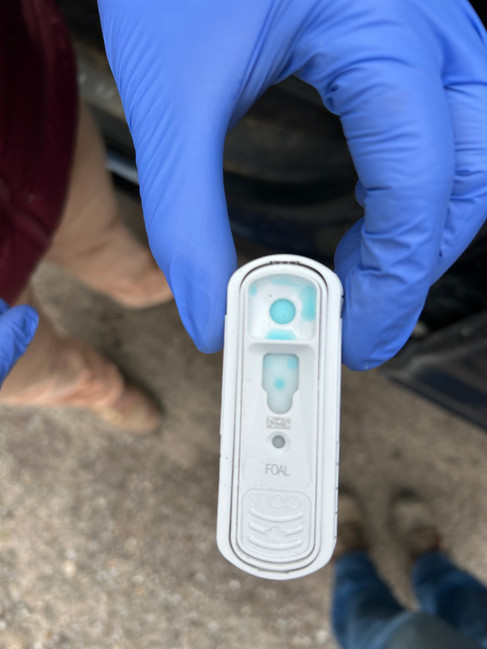The First 24 Hours: The importance of a new foal exam.
- May 6, 2025
- 1 min read
If you are expecting a new foal, one of the the most important things to remember is that the foal should be up and nursing within a few hours of birth. This is because consuming colostrum- or the mare’s first milk- is incredibly important for their health. Colostrum is rich in immunoglobulins, which are antibodies that help fight off disease. Because foals are born without a developed immune system, they rely on the antibodies in their mother’s colostrum to provide protection until their own immune system matures, which can take up to 3 or 4 months. This process is called passive transfer of immunity.
Passive transfer is assessed by performing an IgG test. This simple blood test measures the amount of antibodies in the foal’s blood. It is run stall side, and results are available within a few minutes. It should be done by your veterinarian within the first 24 hours of life to ensure passive transfer occurred. Checking early allows for prompt intervention to prevent any complications.
Failure of passive transfer makes a foal very high risk for illnesses, including a serious, life threatening whole body infection called sepsis. Some signs may include fever, decreased appetite, diarrhea, or swollen joints. Failure of passive transfer can be due to poor quality colostrum produced by the mare or a condition in the foal preventing them from nursing appropriately. This condition is treated by your veterinarian by administering intravenous plasma containing antibodies. Additionally, if the foal is showing signs of illness it must be treated aggressively with the appropriate supportive care such as antibiotics, fluids, and nutritional support.
Written by Dr. Maddy Gehin, May 2025








Comments